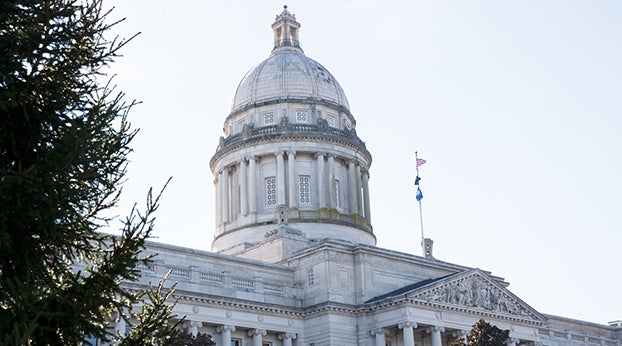Election Day should become a federal holiday
Published 5:59 pm Thursday, January 31, 2019
EDITORIAL
The Advocate-Messenger
While Republican leadership — including Kentucky Sen. Mitch McConnell — has made it clear the chances are slim, we think a recent push to make election day a national holiday is another step toward making voting more accessible for Americans.
The Election Day Holiday Act was proposed by Democrats this month with the aim of making changes to expand voter rights, reform election ethics and reduce the role of money in politics — none of which sound like a bad idea to us.
The movement to make election day a national holiday is not a new one. Similar bills have been proposed in 2001, 2002 and 2005 with no progress.
While most states, including Kentucky, require employers to provide employees time to go to the polls, there is not a federal law guaranteeing time off for voting.
Most federal holiday are set aside as celebrations or to honor a significant figure in American history. What is more deserving of being celebrated than our democracy, our freedom and our rights as Americans to vote?
Part of the appeal of an election day holiday is the hope it would reinvigorate voter turnout in a nation with traditionally low participation.
According to Pew Research data, U.S. voter turnout trails most developed countries. Pew reports that Belgium, Sweden and Denmark have the highest voter participation with more than 80 percent of their respective voting-age populations casting ballots.
The U.S. falls somewhere in the bottom fourth of developed countries when it comes to voter turnout — with even less participation than countries like South Korea, Canada and Mexico.
According to the data, only about 56 percent of the voting-age population participated in the 2016 elections.
In Kentucky, only about a fourth of registered voters participated in the most recent election.
The U.S. Census Bureau reports the most common reason for not voting, according to a survey of nonvoters in numerous elections — including the 2008 and 2012 presidential elections — is that people say they are too busy or have conflicts with work schedules.
It seems most prefer not voting at all rather than waking up earlier than usual, standing in long lines before or after traditional work hours or going out of their way to cast absentee or other special ballots.
While an election day holiday would certainly open up opportunities for more people to vote, it is clear the real problem seems to be a lack of interest or reverence for the election process.
Designating Election Day as a federal holiday would certainly boost interest and demonstrate that we as a country value voting. A more complete solution to voter apathy is complicated and remains unknown, but an Election Day holiday seems like a good first step.





